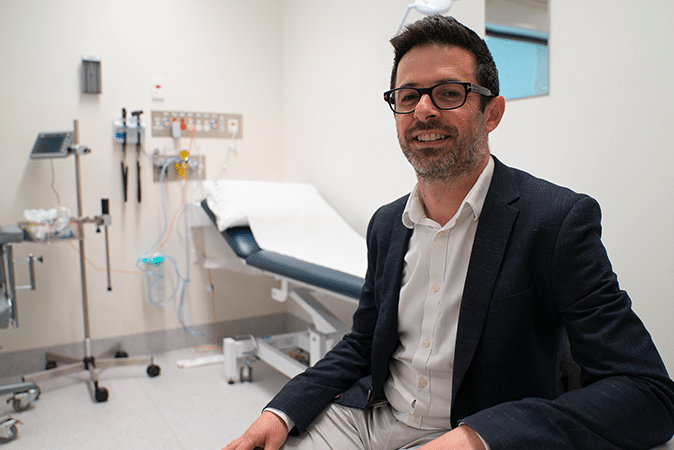Treatment options and patient outcomes for those with early breast cancer have come a long way: patients diagnosed today have a better outlook compared to 25 years ago.
Despite better treatments, many side effects are still tough. The physical, mental and social impacts can linger long after the cancer is gone, leaving patients grappling with significant changes to their overall wellbeing.
As part of a Clinical Fellowship project with Breast Cancer Trials, psychologist and psycho-oncology researcher Michelle Sinclair studied how different breast cancer treatments impact a patient’s overall health-related quality of life.
Her work follows findings from the PROSPECT study, which aimed to identify settings where radiation therapy can be safely omitted for some patients with early breast cancer. Patients had an MRI before surgery and those with a single cancer with lower-risk pathology were treated without radiotherapy after breast conserving surgery. This study was led by Professor Bruce Mann and Dr Allison Rose at The Royal Melbourne Hospital, with the study sponsored by Breast Cancer Trials.
Physically treating cancer is one consideration – but what about the longer-term impacts of omitting radiotherapy for a patient’s physical, mental and social wellbeing?
New research led by Ms Sinclair and Associate Professor Lesley Stafford compared 400 women from three groups: women from the PROSPECT trial who omitted radiotherapy; those who received radiotherapy; and, women who were not part of the trial who received standard care (including radiotherapy without a pre-treatment MRI).
Participants completed questionnaires and semi-structured interviews to measure their concerns about recurrence, how they felt about their cancer treatment decisions, and their physical outcomes.
The research found that women who omitted radiotherapy had less fear of cancer recurrence and experienced fewer side effects compared to the other groups. They also had fewer differences between their treated and untreated breasts.
Ms Sinclair says that fewer side effects likely meant that “patients didn’t have as many triggers to remind them about cancer. We found that many women who didn’t have radiotherapy reported that their breast cancer treatment had a minimal impact on their lives.”
The findings show the importance of considering how different treatment options affect a patient’s psychological and social wellbeing, as well as physical outcomes. It’s also important for clinicians to build trust with patients through clear communication and personalised care.
“Patients were provided reassurance from the MRI and their treating clinician that their cancer was low-risk, and believed that their care was being personally tailored to them,” Ms Sinclair says.
“A lot of women who omitted radiotherapy said, ‘I don’t really think about [cancer] at all now’, which is a fantastic outcome.”
An international follow-up study to confirm PROSPECT’s results is underway, which will include a comprehensive assessment of the mental health and quality-of-life implications of omitting radiotherapy in low-risk breast cancer settings.
Publication:
Stafford L, Sinclair M, Butow P, Hughes J, Park A, Gilham L, Rose A, Mann GB. Quality of Life Outcomes Associated With Optimization of Treatment by Omitting Radiotherapy in Early Breast Cancer. Clinical Breast Cancer. 2024. In Press. Online 06 March 2024. https://doi.org/10.1016/j.clbc.2024.03.002
Support Us
Help us to change lives through breast cancer clinical trials research



